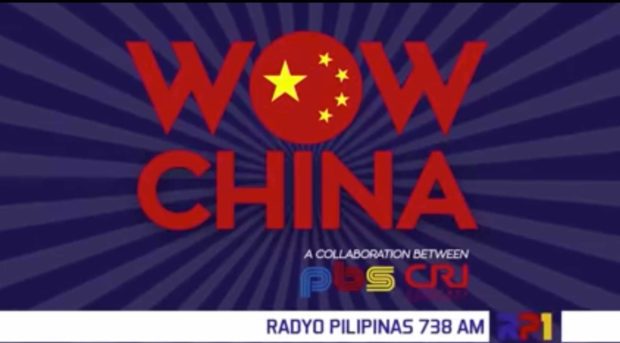by: Rommel F. Lopez

Clearly, ‘Wow China’ is Chinese propaganda.
That was how Senator Risa Hontiveros described the controversial “Wow China” program on the state radio, Radyo Pilipinas RP1.
“Habang may banta ang China na aarestuhin nito ang mga Pilipinong mangingisda sa Paracel Islands at Scarborough Shoal, patuloy naman ang pag-eere ng Chinese propaganda sa Radyo Pilipinas gamit ang sarili nating pondo sa sarili nating state media,” Hontiveros said in a statement.
The Philippine Broadcasting Service (PBS) defended the airing of the program saying the shows only aim is to inform and entertain, and not promote any political view or cause. The PBS, which supervises Radyo Pilipinas RP1, is an attached agency of the Presidential Communications Operations Office (PCOO).
“Wow China is an hour-long educational program that has been airing Saturday and Sunday afternoons on RP1 since 2018, and is independently produced by China Radio International. Co-hosted by a PBS anchor and broadcast in Filipino, the show features the traditions, culture, and history of both the Philippines and China, as well as the differences and similarities between the two countries,” the PBS said in a statement Tuesday.
“Its format is light, informative, and entertaining; in no way whatsoever does it espouse or promote a particular political view or cause,” it added.
The PBS revealed that the program is a collaboration between PBS and China Radio International, a state-owned international radio broadcaster of the PRC.
However, Hontiveros, said that the PBS has collaborative programs with other countries like with the United Kingdom’s BBC and Thailand’s Sawasdee, as well as airing news on ASEAN countries. She stressed that these countries “are not violating our national sovereignty in the West Philippine Sea.”
“Hindi tayo binubully ng mga bansang ito, hindi inaangkin ang mga islang tunay na atin,” the senator said referring to China’s continuous illegal construction and occupation of artificial islands within the Philippines’ exclusive economic zone.
Hontiveros, also disagrees with the PBS’s defense that ‘Wow China’ is a mere informative and entertaining program saying that the Dec. 14, 2019 episode of the program proves that the show is a propaganda program of the People’s Republic of China (PRC) being aired on the Philippine government’s radio station.
“Nagtanong din ang host ng programa about the state of democracy in Hong Kong, to which the guest replied, “With the one country, two systems, China did not curtail democracy in Hong Kong … Mainland government is not interfering in the internal affairs of Hong Kong. ‘One country, two systems’ is being respected by the Chinese government,’”Hontiveros recalled.
The particular program Hontiveros was referring to had the chair of the Nationalist Filipinos Against Foreign Intervention as its guest, and the topic revolved around the Hong Kong protests that were happening at that time.
Hontiveros added that the April 4, April 25, and May 9, 2020 episodes “clearly advanced Chinese state propaganda” when the segments of the program focused on the PRC’s aid to the Philippines to fight the COVID-19 pandemic. Hontiveros added that The host of the May 9 episode even said: “Hindi tayo pinababayaan ng mga foreign neighbors natin especially ng China.”
“It is infuriating that while our government continues to promote all that is well and good about China, albeit using Filipino taxpayers’ money, the Chinese government continues to destroy our reefs, establish new districts in our territory, and harass Filipino fishermen in our own seas,” Hontiveros added.
This is not the first time Filipinos expressed their outrage on social media over what many see as Chinese propaganda in the Philippines. The Chinese Embassy in the Philippines-produced music video, “Iisang Dagat” (One Sea), was bashed on social media by the video’s seeming subtle message of China’s assertion over the West Philippine Sea.
The video, which was uploaded on YouTube on April 24, 2020, currently has 3,800 likes and 214K dislikes.